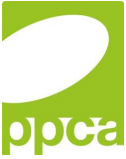Stoush between record companies and radio stations over licence fees set to drag on for a year
The ongoing dispute between radio stations and record companies over the cost of rights for songs for digital transmission is set to rumble on with the Phonographic Performance Company of Australia (PPCA) applying to the Copyright Tribunal to set the level of fees which should be paid.
An interim scheme was introduced at the beginning of the month which saw nearly 200 local commercial regional radio stations cease their online simulcasts of shows due to fears the financial liability stations amass could be cost prohibitive, and possibly back-dated.
Commercial Radio Australia (CRA) said only 42 commercial stations chose to take out the interim license at the January 31 deadline and these stations have indicated that they are reviewing the situation regularly and may also consider switching off. At the time the PPCA said it “regrets” that CRA had chosen to “deprive regional listeners of local programming, rather than take up the interim licence scheme negotiated between CRA (on behalf of its members) and PPCA.”



I do strongly hope that this dispute would be resolved sooner rather than later, CRA along with the broadcasters are still lobbying the federal government even as we speak. I still strongly encourage you all to contact your local MP and the communications minister Malcolm Turnbull to express your concerns links to a letter template including easier navigation to contact your local MP will be below the end of this comment, unless action is taken right away and right now this is set to be the longest running dispute in Australian Radio History. The future of radio is online and digital and they can’t be left behind.
Letter Template (Add your local radio stations name and local MP’s contact details)
http://www.2bs.com.au/wordpres.....Letter.pdf
Local MP contact details:
http://apps.aec.gov.au/esearch/Default.aspx
http://www.aph.gov.au/senators_and_members/members